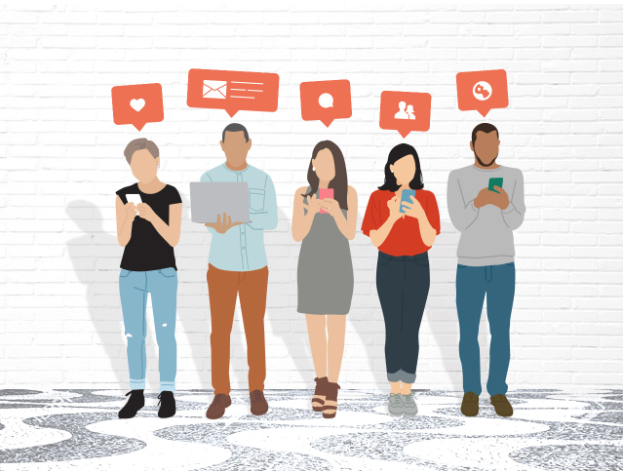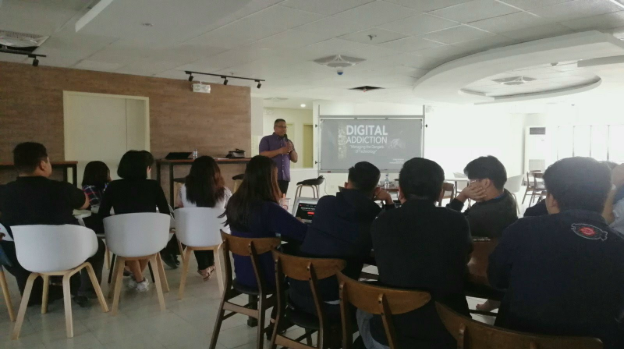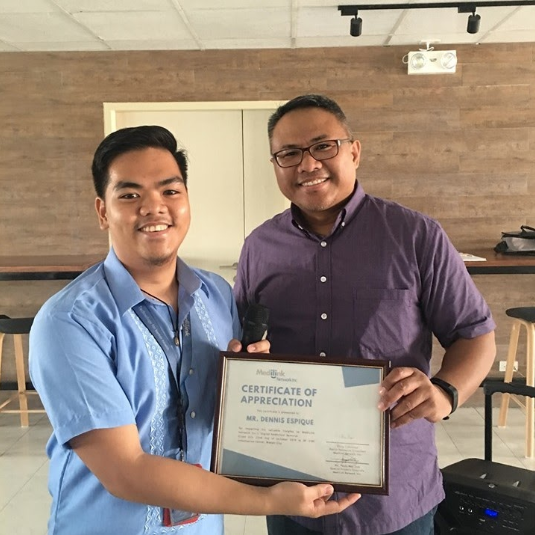The year 2019 was jam-packed with seminars that allowed MediLinkers to learn about many relevant topics, such as climate change awareness and stress management. MediLink is committed to equipping each of its members to live life to the fullest. One of the most pressing issues nowadays, especially for millennials and Gen Z — the bulk of MediLink employees — is digital addiction. So last year, Dennis Espique, an experienced public speaker, certified master mentor for “The World Needs a Father Philippines,” Broadcaster, Social Researcher, and Parenting and Homeschooling Advocate, was invited to share his perspectives.

The seminar presented a different perspective on the digital world with the aim of helping people make wise choices. The speaker explicitly pointed out that the talk was not meant to judge anyone about their respective habits when it comes to digital technology, but rather, to point out that digital addiction, just like any other type of addiction, is one that people try to break free from but are not always successful in doing so.

Dennis Espique warning MediLinkers on the dangers of Digital Addiction
Digital addiction is a relevant issue now more than ever. Heavy reliance and exposure to our screens lead to dysfunction in some brain mechanisms including communication skills, limited cognitive function, deficiency in emotional regulation, lack of sleep, increased anxiety and depression, and lack of empathy. So if digital addiction posed these threats, why is there a continued rise in the number of people who are becoming digitally addicted? According to Dennis Espique, screen addiction uses the same mechanism as the other type of addictions such as alcohol, gambling, cigarettes, etc. This mechanism involves the release or activation of a chemical called dopamine in the brain when we experience pleasure.
In normal simulations, dopamine is released to the different parts of the brain and it consolidates the memory to increase motivation; therefore, it increases the formation of habits because it makes us want to do things repetitively. However, there is such a thing as overstimulation which builds tolerance inside our brains and before we know it, we mindlessly consume more of what gives us pleasure because the regulation or executive control is gone. This puts the addiction at the top spot over other supposedly more important activities.
The speaker also cited research from China and South Korea where internet addiction is classified as a likened to taking cocaine, noting how these countries actually have digital detox facilities to help digital addicts reset their brain into functioning normally again, eventually restoring functions that have been unused due to the addiction to the digital devices. Mr. Espique also mentioned how gaming addiction showcases a similar kind of addiction to gambling. While he acknowledges that albeit providing a sense of relaxation up to a certain point, gaming will not help us reach our highest potential in the long term reiterating how our digital addiction would eventually make some areas of our brain non-functional.
Mr. Espique proceeds to pointing out how everything that we do, the things that we like and engage in on Facebook create patterns in Facebook’s algorithm and end up becoming data for something or someone else. He went on to cite a quote from a scholar who stated that social media envy is a moderate significant predictor of symptoms of depression among Filipino high school students.
Mr. Espique mentioned some very practical remedies, the first of which is to assess our personal use of digital devices. In the Philippines alone, 50% of the population consists of Gen Z (i.e. the digital generation). He then went on to say that unlike most older people, Gen Zs would try to find answers from the internet. While this is not the exact threat on one’s use of digital devices, it is still important to think about how and why we use the internet. Mr. Espique says that we must ask ourselves if our use of the internet is something that is productive because excessive exposure to our digital device could damage our brain mechanisms where our critical skills as human beings rely heavily on.
The second solution suggested by Mr. Espique is to go on a digital detox. Whether we’re digitally addicted to our devices or not, it is wise to reimagine life without these dependencies. Find alternatives to activities and conveniences that are provided for by our digital device just to take a break from all the screen exposure. This also means cutting off social media use for a certain period of time. The speaker then goes on to say how we have reached a point where we’ve become overly dependent on our mobile apps because it is provided and made available to us. However, there are dangers and trade-offs posed by these conveniences and that is what we, as humans, must look out for. So taking a break from all these could help our brain experience a fresh start.

MediLink Human Capital Development team member, John Lloyd Bermudez, awards the Certificate of Appreciation to the guest speaker, Mr. Dennis Espique.
Arguably the most practical solutions cited by the speaker include getting enough sleep and regular exercise. Preoccupying our brain and bodies with activities that are actually good for us will leave little to no room for activities that could potentially lead to digital addiction. While there is a single way to steer millennials and Gen Zs clear of digital addictions, support and guidance from family and friends always comes in handy, thus, bringing light to the awareness of an addiction such as this.